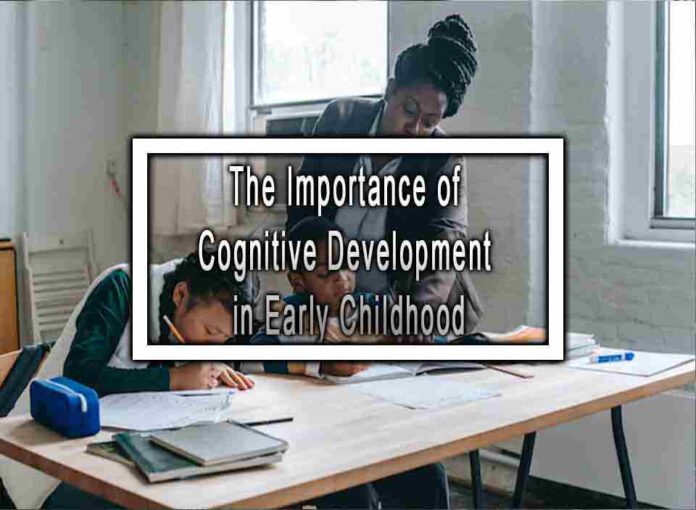Cognitive development in early childhood is of utmost importance as it forms the foundation for a child’s overall growth and future learning abilities. During this critical period, children experience rapid brain development and acquire fundamental cognitive skills that serve as building blocks for their intellectual, emotional, and social development. Here are some key reasons why cognitive development in early childhood is essential:
1. Brain Development:
Early childhood is a period of significant brain growth and neural connections. The experiences and stimuli children encounter during this time have a profound impact on shaping the architecture of their brains, influencing their cognitive abilities throughout life.
2. Language Development:
Cognitive development plays a crucial role in language acquisition. As children’s cognitive abilities grow, so does their language comprehension, vocabulary, and expressive skills. Strong language development lays the groundwork for effective communication and future academic success.
3. Problem-Solving Skills:
Cognitive development fosters problem-solving skills in young children. As they explore their environment and engage in play, they learn to overcome challenges, find solutions, and think critically.
4. Memory and Learning:
Early cognitive development influences a child’s memory capacity and ability to retain information. Enhancing memory and learning skills during early childhood creates a solid base for academic achievements in later stages of education.
5. Attention and Concentration:
Cognitive development contributes to the development of attention and concentration abilities. Children learn to focus on tasks, follow instructions, and engage in activities for extended periods.
6. Mathematical and Spatial Skills:
Early cognitive development helps in the acquisition of foundational mathematical concepts and spatial awareness. Children begin to understand quantities, patterns, and spatial relationships, setting the stage for later math learning.
7. Social and Emotional Intelligence:
Cognitive development is intertwined with emotional and social growth. As children develop cognitive skills, they become better equipped to understand and navigate their emotions and interactions with others.
8. Creativity and Imagination:
Cognitive development nurtures creativity and imagination in young children. It allows them to think creatively, invent stories, and explore new ideas through play and artistic expression.

9. Self-Regulation:
As cognitive abilities develop, children gradually learn self-regulation, enabling them to control their impulses, emotions, and behaviors.
10. Readiness for School:
Cognitive development prepares children for the formal education system. It helps them develop the necessary cognitive skills and foundational knowledge to succeed in school and engage in the learning process effectively.
11. Parent-Child Bonding:
Engaging in activities that promote cognitive development, such as reading, puzzles, and interactive play, also strengthens the bond between parents and children, fostering positive parent-child relationships.
Given the importance of cognitive development in early childhood, providing a nurturing and stimulating environment, encouraging exploration, and offering age-appropriate learning opportunities are crucial for promoting the overall well-being and future success of young children. Early interventions that support cognitive growth can have long-lasting positive effects on a child’s life trajectory.










